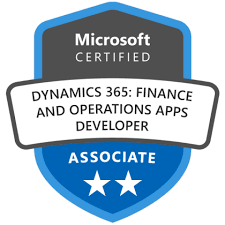MB-500T00: Microsoft Dynamics 365: Finance and Operations Apps Developer

About Course
The MB-500T00: Microsoft Dynamics 365: Finance and Operations Apps Developer course is designed for professional developers and technical consultants who want to learn how to customize and extend the capabilities of Dynamics 365 Finance and Operations (D365FO). This comprehensive course covers the architecture of D365FO, development environment setup, and project/model creation.Participants will gain in-depth knowledge of Developer Tools, including Lifecycle Services (LCS), Visual Studio customization, source code management, and the Application Object Tree (AOT). The course also delves into solution design, code development, and testing, teaching best practices for creating efficient and high-quality code.Furthermore, learners will explore data migration tools, frameworks for extending D365FO functionality, and various integration scenarios with other systems and Azure services. Reporting and analytics are also covered, providing insights into creating and optimizing reports. Finally, the course addresses security and performance optimization, ensuring that the solutions developed are secure, scalable, and performant.By the end of the course, learners will have the skills necessary to design, develop, and maintain solutions that enhance the capabilities of Dynamics 365 Finance and Operations, preparing them for the challenges of real-world development projects.